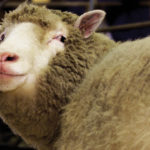Health Canada says meat from healthy cloned animals is no different than that from sexually reproduced animals and there are no health concerns with consuming meat from a cloned animal. It also says a main aspect of cloning animals is to “enhance the propagation of unique, high-value animals.”





